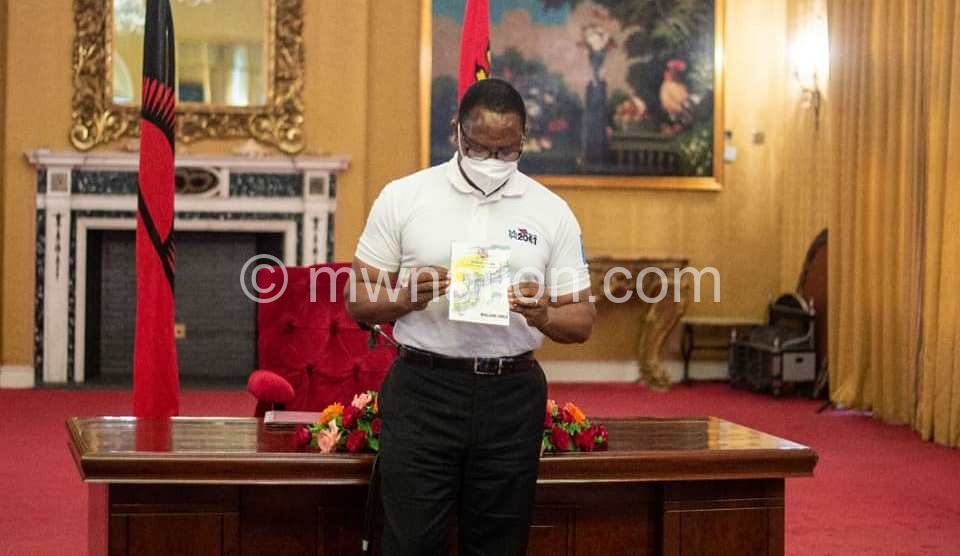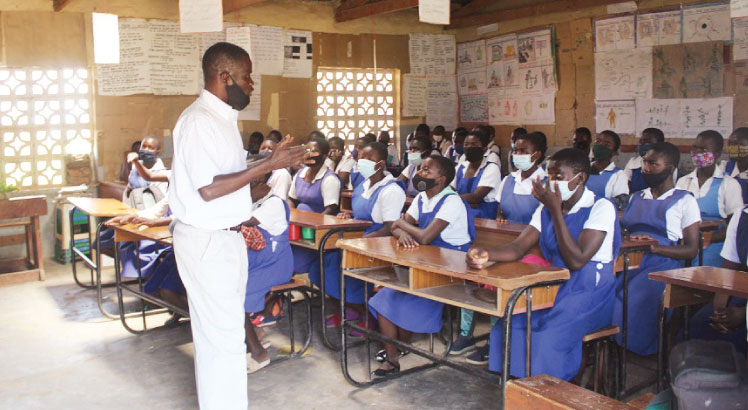Inside Malawi’s new vision
More precious than our children are the children of our children, so goes an Egyptian saying.
Despite all the global challenges, humanity has an obligation to deliver a better world for future generations.

“Each one of us, as citizens, has a role to play in creating a better world for our children,” said South African anti-apartheid icon Nelson Mandela.
In Malawi, a realisation is growing that there is no better way to prepare a brighter future than effective development planning and implementation as well as persistent collective action.
“Effective long-term planning is critical to shaping our collective vision that will unlock the wealth that is needed to achieve and maintain Malawians’ good quality of life,” says National Planning Commission (NPC) board chairperson Professor Richard Mkandawire.
On Tuesday, the commission launched the new national vision called Malawi 2063.
The new blueprint comes barely weeks after the Vision 2020, unveiled in 1998, expired on December 31.
Its successor launched by President Lazarus Chakwera in Lilongwe yesterday is a youth-centric national transformation agenda for “inclusive wealth creation and self-reliance”.
Malawi 2063 will be implemented through various mediums and short-term strategies, including a 10-year implementation plan, five-year quick wins strategy, sectoral and district council plans as well as the annual national budgets.
This new vision has been developed through extensive and inclusive consultations with Malawians from different backgrounds.
It outlines collective aspirations of Malawians towards 2063, the centenary of Malawi’s independence and deadline of Africa Union’s Agenda 2063.
It hinges on the three pillars—agricultural productivity and commercialisation, industrialisation and urbansation—as enablers for economic independence, inclusive wealth creation, self-reliance and quality of life for all.
The vision seeks to transform Malawi into an “upper-middle-income country” with an income of $4 000 per citizen by 2063.
“Already, projections indicate that if the economy grows at an annual average rate of six percent, Malawi will attain the low middle-income status with per capita income of $1 000 per person by 2030,” reads the preamble of the vision document.
The strategists envisage the country reaching both the low and upper middle-income status “much earlier” if Malawians are more innovative and productive.
According to the vision, Malawians’ desire and resolve to be “an inclusively wealthy and self-reliant industrialised upper-middle-income country by 2063, so we can fund our development needs primarily by ourselves”.
“Our manufacturing industry shall have strong forward and backward linkages with the sectors that will drive it. We shall achieve this Vision through collective efforts and shall not allow any state or non-state actor to derail us,” it reads.
Malawians want to have vibrant knowledge-based economy with a strong and competitive manufacturing industry driven by a productive and commercially vibrant agriculture and mining sector as well as world-class urban centres and tourism hubs nationwide with requisite socio-economic amenities.
Malawians also desire to be united, peaceful, patriotic and proud people who believe in their own abilities and actively participate in building their nation with effective governance systems and strong institutions that uphold the rule of law.
They also want the private sector to be dynamic and vibrant, creating jobs and exporting quality products, world-class economic infrastructure, a globally competitive and highly motivated human resource and an environmentally sustainable economy.
At community and household level, Malawians want minimum socio-economic amenities to enhance the quality of life for all.
These include adequate and nutritious food for everyone throughout the year as well as well-equipped and staffed health facilities in line with population growth.
Other amenities include well-equipped and staffed early childhood development centres, primary and secondary schools that take into account the existing population and offer a minimum of 12 years of formal and quality education to every Malawian.
The citizenry also desire access to reliable electricity, tarmac roads, clean piped water, technical and vocational training centres, Internet connectivity and decent housing for all.
“While benchmarking to international standards, when these basic minimums are met, we shall know that we are on the road to realise the aspiration of an inclusively wealthy and self-reliant society by 2063,” reads the vision.
It demands home-grown solutions and locally generated resources to achieve the strategic goals, a shift from age-old dependence on foreign ideas, aid and debt to finance our development programmes.
“Our desire is to develop and implement resource mobilisation efforts that will enable the country to create its own wealth and only borrow for investments with high economic returns,” it reads.
The 2063 deadline, marking the country 100 years of self-rule, also signifies long and selfless planning across generations.
“The focus is no longer ‘what is in it for me’ but ‘what is in it for our children and their children’,” reads the blueprint.
The national strategy acknowledges the country’s youthful majority as “our greatest resource and source of wealth”, making them central to the success of the new vision.
Malawi 2063 calls for mindset change among Malawians, including policymakers and advocates.
It represents a swing of focus from poverty reduction to wealth creation.
Like the Vision 2020, its success requires relentless political will and a strong commitment to “visionary and transformative leadership” instead of “commercialisation of politics”.
It reads: “Our political leaders must not be obsessed with power, but put the needs of Malawians first using the authority given to them on trust by the people to develop the country to its full potential.”
“This will initiate and sustain a culture in Malawians of striving to create their own wealth and desist from worshiping and praising those in authority in search of undue economic entitlements and hand-outs.”
For citizens, the vision demands a positive mindset, unity, patriotism, hard work, integrity and self-help—not a culture of handouts.
However, as President Chakwera stated when he opened the National Development Conference in August 2020, in matters of national development, talk is cheap.
“Building a new Malawi is a task for our hands, not for our lips. We already know what kind of nation we must build. What we lack is a national resolve to move these things from our shelves and conference tables and turn them into reality,” he said.





